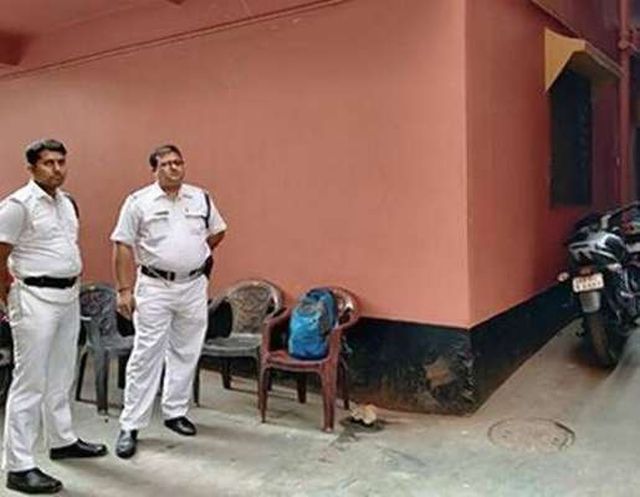
by Editor | May 25, 2021 | News, Politics
 Kolkata : Kashmiri doctor residing in Kolkata alleged that some people turned up at his place post-Pulwama terror attack and threatened him to leave the city, police said on Monday.
Kolkata : Kashmiri doctor residing in Kolkata alleged that some people turned up at his place post-Pulwama terror attack and threatened him to leave the city, police said on Monday.
The miscreants also threatened to harm his daughter if the medico — a famed cardiologist — chose to stay on in the city.
A senior officer of Kolkata Police said the doctor (name and address withheld) has made an allegation against a group of people who turned up at his place on Friday and ‘asked him to leave Kolkata’.
“Based on doctor’s complaint we have started an FIR, but still could not get any witness to corroborate his allegations. The investigation is going on,” he said.
The doctor, in his 40s, is residing in Kolkata for more than 20 years.
Chairperson of the West Bengal State Commission for Protection of Child Rights Ananya Chakraborti told IANS: “The Chief Minister has assured the safety of the doctor and his family and I personally spoke to him after the incident.”
“He has been provided security. His wife and daughter are also leading a normal life now and the family is safe,” she said.
—IANS
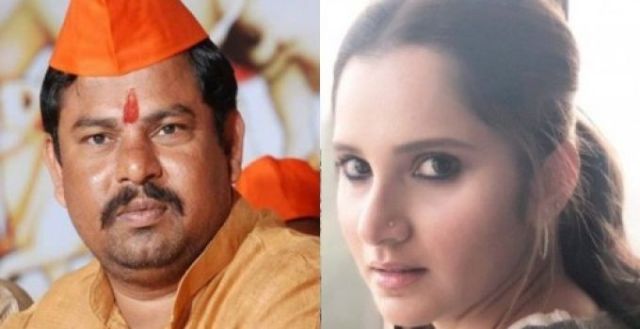
by Editor | May 25, 2021 | News, Politics
 Hyderabad : Controversial BJP legislator Raja Singh on Monday called for removing Indian tennis star Sania Mirza as the brand ambassador of Telangana, calling her “Pakistan’s daughter-in-law”.
Hyderabad : Controversial BJP legislator Raja Singh on Monday called for removing Indian tennis star Sania Mirza as the brand ambassador of Telangana, calling her “Pakistan’s daughter-in-law”.
The Telangana Assembly member said Chief Minister K. Chandrashekhar Rao must immediately remove Mirza as the brand ambassador in the wake of the February 14 terror attack in Pulwama that claimed the lives of 49 Central Reserve Police Force (CRPF) troopers.
“We don’t need a Pakistani bahu as brand ambassador of Telangana,” said Raja Singh, who represents Goshamahal constituency in Hyderabad.
He feels that removing Sania Mirza, the wife of Pakistani cricketer Shoaib Malik, as brand ambassador will send a strong message to Pakistan over its involvement in terror activities.
Raja Singh said when the Central government was taking a series of tough measures against Pakistan, the state government should also take the step to convey strong sentiments of the Indian citizens to Pakistan.
The BJP leader suggested that the state government could appoint any other player as its brand ambassador.
“We have cricketer V.V.S. Laxman and badminton stars Saina Nehwal or P.V. Sindhu, who are also from Telangana and who have brought many laurels to the state and to the country,” he added.
Telangana had named Sania Mirza as the state’s brand ambassador in July 2014. Then BJP leader in Telangana Assembly K. Laxman had termed Mirza as “non-local” and “Pakistan’s daughter-in-law” questioning her credentials to represent the state.
Reacting to Laxman’s comment, the tennis ace had said that though married to a Pakistani, she would remain an Indian until the end.
Married to Shoaib Malik in 2010, Sania Mirza gave birth to a baby boy in 2018.
—IANS
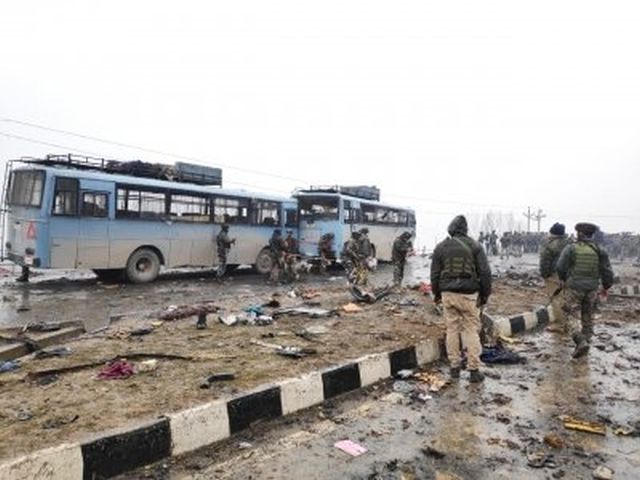
by Editor | May 25, 2021 | Opinions
 By Amulya Ganguli,
By Amulya Ganguli,
One of the most disturbing aspects of the February 14 terror attack in Pulwama was that the suicide bomber was a local, Adil Ahmad Dar, who lived in a village near the Jammu-Srinagar highway where the attack took place.
Although indoctrinated as a fidayeen by the Pakistan-based Jaish-e-Mohammad, Dar’s act as a jehadi underlines the vulnerability of impressionable Kashmiri youths to insidious anti-India propaganda by Pakistani terror groups nurtured by the Deep State comprising the country’s army and an espionage agency.
In this particular instance, Dar was apparently “inspired” to kill himself by the Taliban’s “victory” signified by American withdrawal from Afghanistan. If anything, the tragedy emphasises the inter-linked international dimensions of Islamic terrorism.
From Syria to Afghanistan/Pakistan to Kashmir, the jehadi mindset is primed among the youth by the mythical Islamic Caliphate’s war against the kafirs (infidels).
Unlike West Asia and even in the Afghanistan-Pakistan region, Indian democracy provides a safeguard against a Messianic struggle, which is why an overwhelming majority of Indian Muslims, including those in Kashmir, remain committed to the democratic system.
As much is evident from the recent panchayat and municipal elections in the state even if the polling percentages in the Valley were low.
However, it is undeniable that a section of Muslims in the valley continue to remain alienated notwithstanding the government’s attempts to reach out to them via the negotiations carried out by the Centre’s representative, Dineshwar Sharma.
But if his efforts have failed to defuse the situation, the reason perhaps is the government’s reluctance to implement some of the recommendations to improve the conditions made by the Dileep Padgaonkar Committee.
These included reducing the army’s visibility, addressing human rights violations, reviewing the Armed Forces Special Powers Act (AFSPA) and lifting the Disturbed Areas Act.
In essence, what these initiatives were expected to do was to reach out to the hearts and minds of the ordinary people whose commitment to the Indian state cannot be doubted as the continuing relevance of the mainstream parties like the National Conference and the Peoples Democratic Party show.
What is required to defang the terrorists and wean away the misguided youth from their self-destructive path is a gesture which will have a major impact.
One of them is to consider freezing the AFSPA (former Congress minister P. Chidambaram wanted it to be scrapped altogether) and to give a cast-iron guarantee that neither Article 370 nor Article 35A will be touched. The former confers a special status on Kashmir and the latter relates to citizenship rights.
It is only such “big ticket” reforms which can end the sense of alienation among the youths who are cynically exploited by Pakistan’s Deep State.
An outreach of this nature will confirm that the government does not regard Kashmir merely as a law and order problem, where all that is needed is a harsh crackdown on the malcontents.
Arguably, the Bharatiya Janata Party (BJP) may not find it easy to change its longstanding stance favouring dispensing with Article 370. But it has to be remembered that Atal Behari Vajpayee did put Article 370 in cold storage in 1996 along with his party’s demand for building a Ram temple and introducing a uniform civil code when he was looking for allies to form a government.
Vajpayee had also called for looking at the Kashmir issue within the parameters of insaniyat (humanity) rather than of the Constitution.
Such broadmindedness is the need of the hour to dissuade deluded young men like Dar from the path of nihilism. Otherwise, more and more of such brainwashed youths will leave their kith and kin to court untimely death.
Equally, scores of security personnel will be in danger of losing their lives because official policies have failed to assure the discontented people of a state with a distinct cultural ambience that they are the nation’s cherished citizens.
It is only when the Kashmiris are visibly mollified that Pakistan’s “isolation”, which the Centre is currently seeking, will be complete, for a fully integrated Kashmir will negate Pakistan’s hope of avenging its Bangladesh defeat and recovering the “K” in the country’s name.
India has dealt with rebellious outbreaks in different parts of the country from the Northeast to the Maoist belts in central and western areas with a fair amount of success. There is no reason why it cannot achieve the same in Kashmir with a patient understanding of the grievances affecting the state, especially when it has national-level leaders like Farooq and Omar Abdullah and Mehbooba Mufti with their political and administrative experience.
True, the jehadi factor makes it difficult for a government to adopt a sane attitude because of the irrational pseudo-religious fervour of the militants. But an overt demonstration of being sensitive can enable the government to enlist the overall support of Kashmiri society and enable the elders to rein in the rebels.
(Amulya Ganguli is a political analyst. The views expressed are personal. He can be reached at amulyaganguli@gmail.com)
—IANS
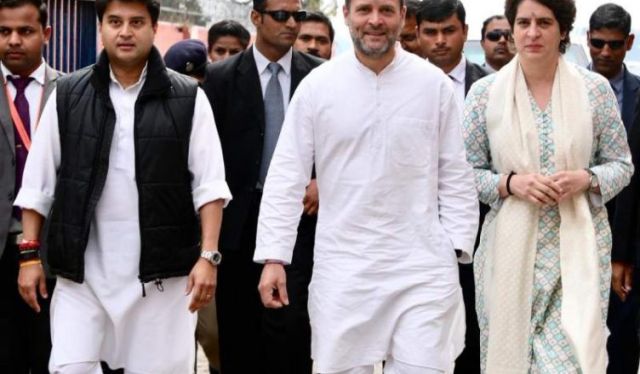
by Editor | May 25, 2021 | Opinions, Politics
 By Saeed Naqvi,
By Saeed Naqvi,
The ghastly news from Kashmir did cast a shadow, otherwise Lucknow has had a festive February. The first week was filled with the five-day annual Sanatkada jamboree with fabled Baradari as the festooned focal point. While the mood still lingered, the city found itself riveted on Priyanka Gandhi’s roadshow with her brother and Congress President Rahul Gandhi in tow.
Those who had expressed doubts about her ability for hard work must have gasped: she interviewed candidates all night. Never mind if many of them did not come out with flying colours: some did not know basic facts about their respective constituencies.
Diplomats, who would normally send their Indian staff to study the local mood, have turned up themselves. While the Congress office at the Mall Avenue is crawling with aspiring netas, Taj hotel, where both Priyanka and Jyotiraditya Scindia are staying, has enough security to annoy the hotel’s other guests. Has security obstructed Priyanka kicking off the campaign with a dip in the Ganga during Kumbh? Congress choreographers had also floated the idea that a visit to a temple in Srinagar would authenticate her Kashmiri lineage. Who knows, that expedition may still be undertaken.
If arithmetic alone were to determine electoral outcomes, the Samajwadi Party-plus-Bahujan Samaj Party arrangement in Uttar Pradesh is formidable. But the chemistry of their workers at the constituency level has been adversarial.
True, grassroots workers are grappling with instructions from their leaders to tone down their animosities. But there are other complications, particularly in Akhilesh Yadav’s camp. His uncle, Shivpal Yadav, is not reconciled to Akhilesh Yadav’s unbridled control over the SP apparatus. So he has opened his own shop to trade his dwindling clout at the grassroots with anybody eager to damage the SP-BSP alliance. The Bharatiya Janata Party (BJP) is so flushed with funds that it will loosen all its purse strings for Shivpal Yadav’s anti-Akhilesh mission. The choice is Shivpal Yadav’s: pocket the money or waste it.
Meanwhile, Mulayam Singh Yadav, founder of SP, is so torn between his son and younger brother that he waffles something in favour of both alternately. In Parliament last week he left Sonia Gandhi, like everyone else, in a state of wonder. Making eye contact with a grinning Narendra Modi he said: “May you come back to power”. The ear-to-ear smile on Mulayam Singh Yadav’s face was interpreted by most as a clue to a deep understanding. He has so far been protected from the Enforcement Directorate.
“We shall not be on the back foot,” was Rahul Gandhi’s reaction to the insult heaped on the Congress by SP-BSP distributing nearly all the 80 seats among themselves, leaving two each for the Congress and the Rashtriya Lok Dal (RLD). He virtually advanced his proprietary claim on Uttar Pradesh by announcing that his party would contest all 80 seats.
In making this announcement Rahul Gandhi fell back once again on a delusion the party has nursed ever since it dropped to 140 seats after the Babari Masjid debacle. It is aching to revive. It is well nigh impossible for this desire to be fulfilled. A political party waxes and wanes, revives and loses, is up and down alternatively only in a two party system. In a country with 31 states, each with its own shade of politics, the seesaw model cannot work. The Congress must recognize the reality of a federal India. Otherwise it will continue to reset its target. Let me explain.
For 2019, the declared aim of all parties is to remove the BJP. Mamata Banerjee has grasped the reality. At the meeting called by the Aam Aadmi Party (AAP) on Jantar Mantar Road, she said that all regional parties must fight the BJP from their respective states and regions. “The Congress should fight from Madhya Pradesh, Rajasthan, Chhattisgarh – states where it has shown that it is strong.”
The Congress is uncomfortable being so circumscribed. It will not recover from a hangover of years long past when it was the only political party. In its origins, it represented diverse interests federated behind a programme for freedom. Subsequently, almost every political party came out of the Congress womb. Once Krishna Menon, Congressman closest to the Communists, and S.K. Patil, far right capitalist, fought the 1957 election on Congress ticket from different districts of Bombay (Mumbai).
In time, disparate interests, glued together, splintered. In 1967, eight Indian states had non-Congress governments. But the Congress remained in power in the centre for a simple reason: its social base remained relatively cohesive. But when in 1990, with Mandal Commission report giving reservations in government jobs to the OBCs whipping up the tempo of caste politics in North India, the Ram Janmabhoomi agitation was dusted up to promote Hindu consolidation. This would minimize the settlement at the lower reaches of the caste pyramid. Hindu consolidation would be best affected by bringing out the “other” in bolder relief. I have always believed that in India communal politics is a strategy to manage caste upheaval.
The unease in Hindu-Muslim relations since Partition exploded into full blown communalism in the 90s. It peaked with the demolition of the Babri Masjid on December 6, 1992, the blame for which the minorities placed at the Congress Prime Minister’s door. The Muslim voter left the Congress en masse. In the 1996 elections, the Congress was down to its lowest Lok Sabha tally ever — 140 seats. It hovered around that figure, leapt to 206 in 2009 (for a range of reasons) and dived to 44 in 2014. Post 9/11 global Islmophobia was a Godsend to Hindutva, compelling the Congress into temple hopping and relentless cow worshiping for sheer survival.
There are reasons to believe that the BJP will not be able to repeat its 2014 performance in 2019. The nation is, therefore, headed for two distinct coalitions, facing each other across the aisle. One coalition will be led by the BJP. It is to make sure that it alone leads the other coalition that the Congress is playing risky games in Uttar Pradesh, Delhi and to some extent West Bengal. In these states it is either threatening or fighting formations implacably opposed to the BJP.
(Saeed Naqvi is a commentator on political and diplomatic affairs. The views expressed are personal. He can be reached on saeednaqvi@hotmail.com)
—IANS
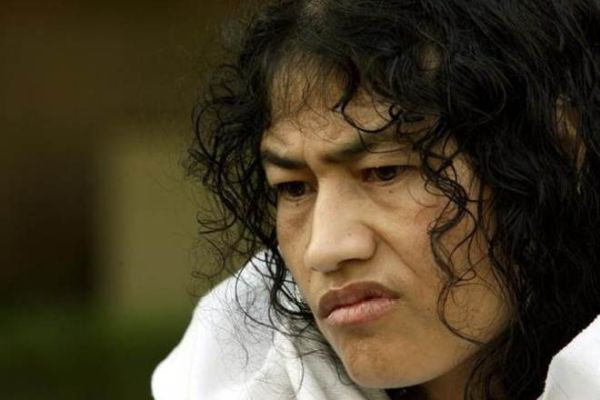
by Editor | May 25, 2021 | News, Politics

Irom Sharmila
Kolkata : Manipur’s legendary human rights activist Irom Sharmila, who continued a fast-unto-death protest for 16 years demanding repeal of an Act, on Friday said she dreams of a world without caste, discrimination and dictatorship.
“I want to leave for my children a world without caste, discrimination, and dictatorship, and where all people would have equal status,” Sharmila told media persons here at the trailer launch of the docu-feature “The Turning Point” based on her life.
The docu-feature is being made primarily for some foreign television channels, said the director indranil Sarkar.
“Initially, we want to reach out to a global film audience. Later, it may be released nationally, but the producer is yet to tell me about his plans,” said Sarkar.
The Iron Lady had continued her fast-unto-death for 16 years till mid 2016 demanding repeal of the Armed Forces (Special Powers) Act. She then joined politics, but secured a meagre 90 votes In the Manipur assembly polls in 2017.
She then married Desmond Coutinho and faded from the limelight.
Sharmila, now on the family way, was asked how her married life was different from her days as a spinster. “Well, these are separate chapters of life. That’s how I see it.”
Coutinho and the film’s producer Jaspreet Kaur were also present at the programme.
“Everybody sees Sharmila as an Iron Lady. But I have brought to the limelight only the lady. And during our project, I have found her to be a very good human being. She still is very much rooted,” said Sarkar.
—IANS

 Kolkata : Kashmiri doctor residing in Kolkata alleged that some people turned up at his place post-Pulwama terror attack and threatened him to leave the city, police said on Monday.
Kolkata : Kashmiri doctor residing in Kolkata alleged that some people turned up at his place post-Pulwama terror attack and threatened him to leave the city, police said on Monday.



